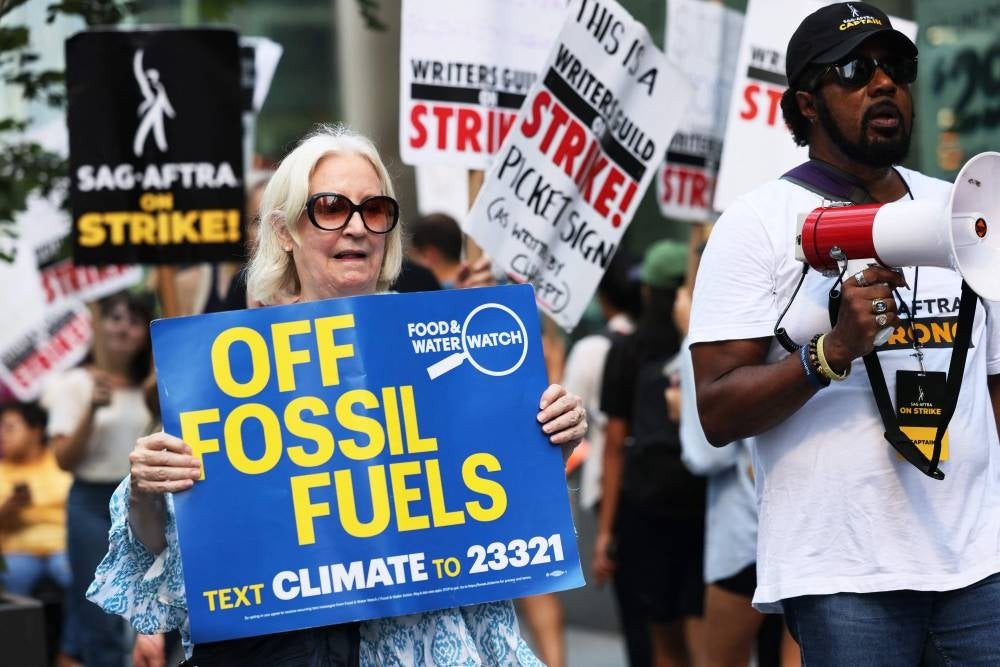G20 makes no mention of phase-out of polluting fossil fuels

NEW DELHI, India - G20 leaders meeting Saturday failed to commit to a phase-out of polluting fossil fuels, a requirement deemed "indispensable" just a day earlier by the United Nations to achieve a net-zero goal.
Group of 20 leaders have been meeting in the Indian capital New Delhi during what is likely the hottest year in human history.
Achieving net-zero carbon emissions by 2050 will require phasing out fossil fuels whose emissions cannot be captured, and dramatically increasing clean power, the UN's first progress report on meeting Paris Agreement climate goals said on Friday.
"Scaling up renewable energy and phasing out all unabated fossil fuels are indispensable elements of just energy transitions to net zero emissions," the first UN Global Stocktake said.
But while the G20 warned funds for climate transition must "substantially scale up", and they said they would back efforts to triple global renewable energy capacity by 2030, they did not mention the critical phase-out of all fossil fuels.
Instead their statement referred to "accelerating efforts towards phasedown of unabated coal power, in line with national circumstances and recognising the need for support towards just transitions".
G20 countries account for 85 percent of global GDP and a similar amount of global climate warming emissions, making action in the forum crucial to real progress.
But per capita coal emissions have risen by nine percent across the grouping since 2015, research showed this week, largely driven by India, Indonesia and China, despite transition efforts by some members.
The group "will pursue and encourage efforts to triple renewable energy capacity", the leaders' statement said, recognising the importance of speeding up the development of technologies and policies to move to low-emission energy systems.
Wealthy nations have already failed to deliver on a pledge to provide $100 billion a year in climate finance to poorer nations by 2020.
"We commit to urgently accelerate our actions to address environmental crises and challenges including climate change," the statement added.
Earlier on Saturday, Brazilian President Luiz Inacio Lula da Silva told the summit that the planet was facing an "unprecedented climate emergency". - AFP













